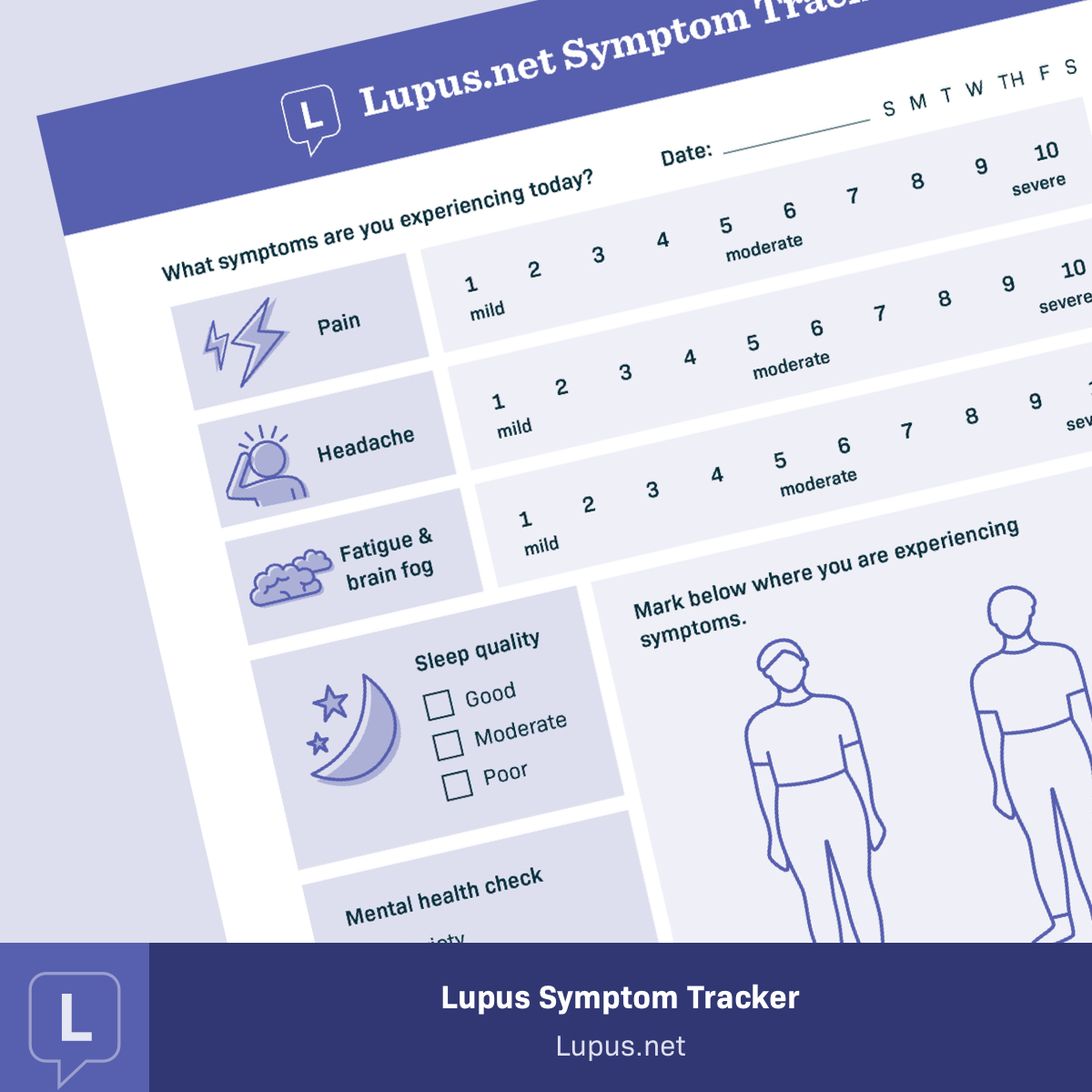Lupus Symptom Tracker
Many aspects of lupus are outside of your control. You might experience flare-ups when symptoms worsen and periods when lupus symptoms are mild. Your rheumatologist might ask that you keep a journal or diary of your flare-ups so they can help manage your treatment plan.
In this article, we share common lupus triggers and offer a free downloadable symptom tracker that can help you look for patterns in your lupus care.
Lupus triggers
Identifying triggers is an empowering way to understand your condition. That might mean recognizing how you feel after spending time outdoors in direct sunlight, taking inventory of your skin and when or how rashes develop or noticing what happens after a stressful day. It is different for every person living with lupus. These are obviously not all of the known triggers. Please note, it is important to talk to a healthcare provider about any new or worsening symptoms.
Tracking lupus symptoms
By recording the changes in your body, you will be able to track patterns and see exactly how much is affected by flares. Keep at it each week, and make notes about events such as doctor visits and new treatment to see patterns over time.
We invite you to download this symptom tracker and implement symptom tracking into your daily or weekly treatment plan. Feel free to use reuse this tracker multiple times and share your findings at your next doctor visit.
Share your progress with us
Our forum, "Keeping Track of Symptoms," started by a lupus advocate, is a great place to share your experiences. Once you've used our tracker (or one of your own), let the community know what works, what doesn't, and how it has helped (or has not). We would love to hear from you.


Join the conversation